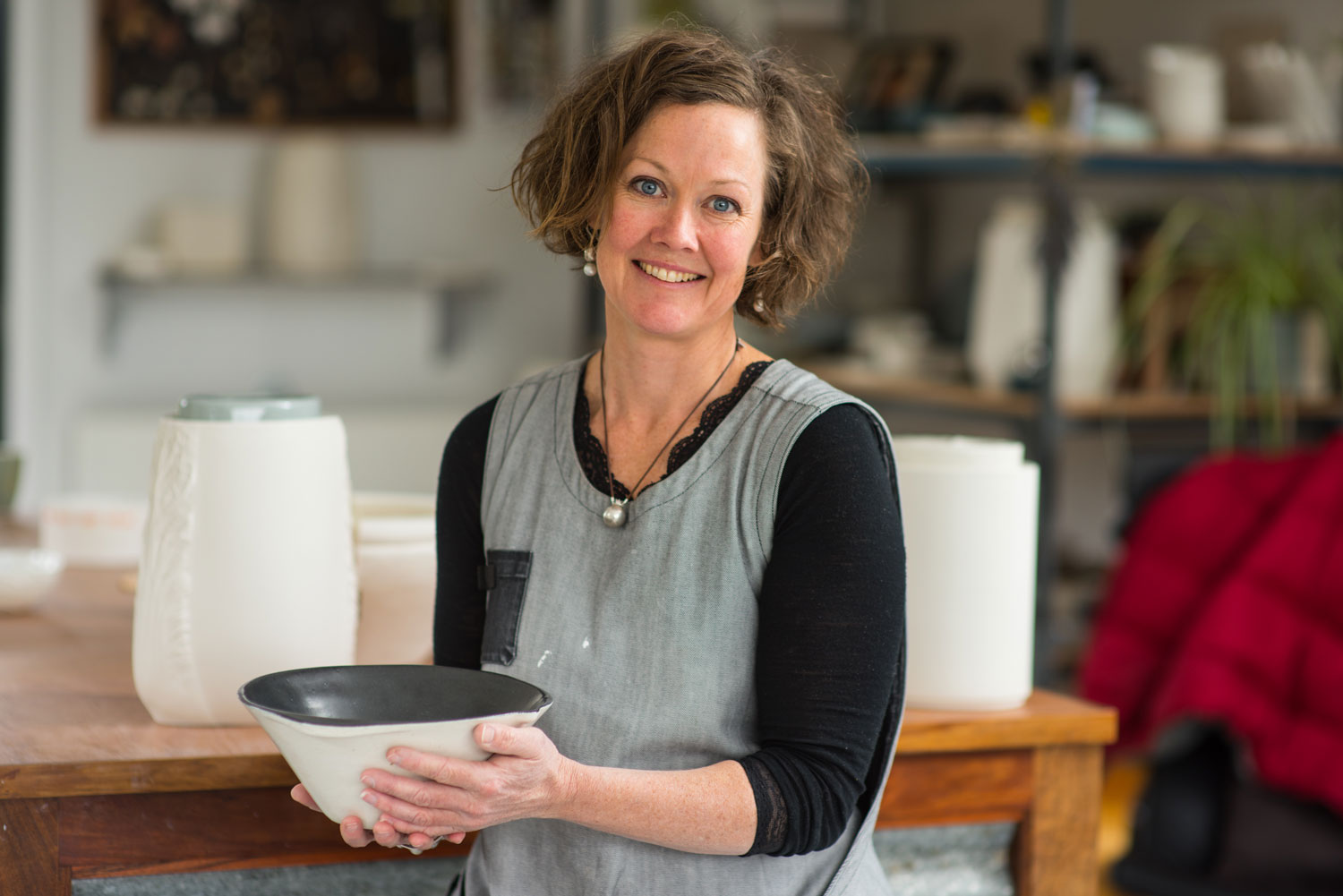Hands On
STORY & PICTURES BY RICHARD CORNISH
“If a piece ever breaks, I bury it in the backyard. I think it is important to leave a legacy of your life for the archaeologists of the future.”
Ceramicist Emma Jimson hands over a little cup of coffee. It is dark black with a beautiful lustre. When held up to the light it is slightly translucent. It is fine porcelain, fits snuggly into the hands and somehow feels both rustic and delicate. It is truly beautiful.
Emma works from a light filled studio Pom-me-granite at Pastoria East in the foothills of the Cobaw Ranges. She works in slip casting which involves creating a form and from this is made a mould. A slurry of clay, or slip, is poured into the mould. After a certain period of time some of the clay will have set. The excess slip is poured away and the porcelain left to harden. It is then glazed if necessary then fired at high temperature.
What is most notable is the texture on her ceramics. The stunning clean lines of a kimchi fermenter are broken on the side the by the ribs and curls of the form of the leaves of wombok – Chinese cabbage. “I take a real leaf and make a form using latex,” she says. “It is a way of capturing the beauty of nature.” The kimchi rock is co-production with Daylesford’s Sharon Flynn from the Fermentary. Emma has also been inspired by Trentham chef Annie Smithers. “I was doing a cooking class with Annie and there was this beautiful texture on her purse,” explains Emma. “It was actually tripe. Tanned tripe. It was so beautiful and so intricate.” Emma took a mould, made a form and this tripe texture has now been used in Emma’s bowls, cups and other ceramics.
She has even used caul, the lace like lining of fat from inside a sheep, as a texture to create truly beautiful bowls.
Emma is a trained ceramicist who studied at the VCA and Monash University. She believes that we have reached peak consumerism and are heading to a time where household goods such as tableware once again will become precious. “When you can buy a dinner set from Ikea for very little money it no longer becomes valued,” she says. “Our parents were given a dinner set when they were married and that lasted them for their lives together”.
Although slip casting allows pieces to be replicated time after time while the mould remains intact, Emma remains an artisan. “I only do limited numbers of one piece,” she says. “After that I need to create something new.” Creating something new is no mean feat. Her iconic fermenters, for example, are so complex that they took years to develop including making models in clay, prototypes in wood and lots of experimentation along the way. “If a piece ever breaks,” she says. “I bury it in the backyard. I think it is important to leave a legacy of your life for the archaeologists of the future,” she says with a smile.
Emma’s work is available at Chairmakers Wife, Kyneton. She holds regular workshops at Pom-me-granite Studio. It is also open by appointment only at 1732 Baynton Rd, Pastoria East. Call 0438 808 663. pommegranite.com.au



